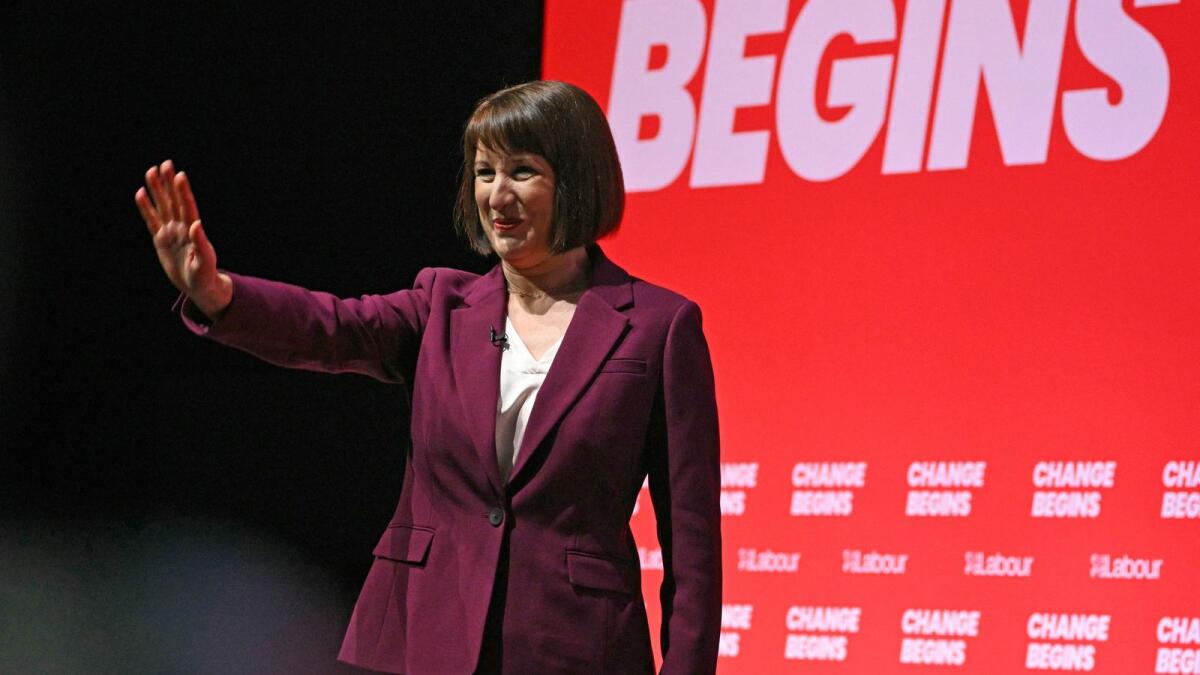Rachel Reeves, the Chancellor of the Exchequer in Britain, delivered a speech at the Labour Party conference, ruling out a “return to austerity” in an attempt to uplift the tone of her party following their recent election victory. The Labour party had been preparing the public for potential spending cuts due to the financial gap left by the previous Conservative government’s austerity measures. Reeves painted a hopeful picture of a prosperous Britain through investment in manufacturing and services, emphasizing the importance of work that pays well and supports future generations. However, she did not provide a specific timeline for this growth and new job creation, and hinted at the need for tough decisions like cutting winter fuel payments for pensioners.
Addressing a packed conference hall in Liverpool, Reeves declared that there would be no return to austerity, criticizing the damaging effects of the Conservative austerity measures on public services and economic growth. Despite acknowledging the necessity of tough decisions to address the previous government’s mistakes, she expressed her ambition for Britain’s future. Reeves justified her decision to cut fuel payments by highlighting the financial challenges left behind by the Conservatives. She emphasized her commitment to making challenging decisions for the benefit of the country and announced the launch of free breakfast clubs for primary school children as part of her optimistic vision for Britain.
Reeves aimed to boost morale amidst ongoing controversies within the government, including criticism over accepting donations for clothing and declining consumer confidence. She emphasized that not reverting to austerity would result in overall growth in public spending under the Labour party. Despite ruling out tax increases, Reeves acknowledged the importance of maintaining political stability to attract business investments and suggested that companies might be required to contribute more, given the high level of government debt. As challenges like the rejection of a pay award by NHS nurses and the need to investigate pandemic contracts arise, Reeves stressed the importance of making difficult decisions to navigate the economic landscape.
The Chancellor’s optimistic outlook contrasts with recent concerns about the government’s economic impact and calls for a more positive narrative to drive growth. Reeves’ speech sought to reassure the public that tough decisions would be made to address past mistakes while paving the way for a future where prosperity, investment, and stability are prioritized. By highlighting the need for both ambition and resolve in decision-making, Reeves presented a vision of a brighter future for Britain. As the government navigates challenges ahead, including restoring public confidence in healthcare and investigating past contracts, Reeves emphasized the importance of making the right choices now to secure a prosperous tomorrow.
Reeves’ message at the Labour Party conference reflects a shift towards a more optimistic and decisive approach to economic policy, contrasting with the austerity measures of the past. Her commitment to avoiding tax increases while focusing on growth and stability signals a new direction for economic governance under Labour. By acknowledging the past failures and outlining a vision for a more prosperous future, Reeves aims to instill confidence in the public and address concerns surrounding the government’s economic strategy. As the government tackles ongoing challenges and strives to rebuild trust in its decision-making processes, Reeves’ speech sets the tone for a government that is determined to make tough choices for the benefit of the country’s economy and society.
















